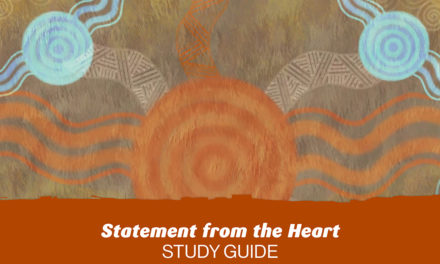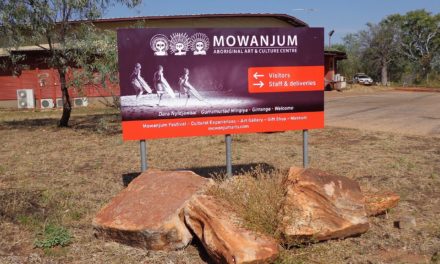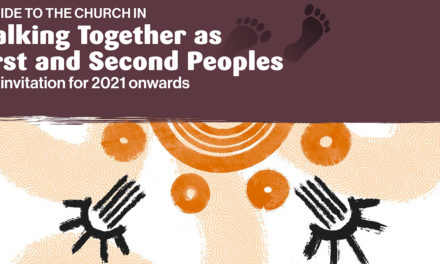Here’s a sermon preached by David Fotheringham at High Street Uniting Church, Frankston, for Season of Creation – Earth, 10 October 2021.
Read: Genesis 1:26-28 (Preferably in The MESSAGE translation); Psalm 8; Mark 10:41-45
God of all, grant that we may hear your voice through the Scriptures, through the world you have made, through our human encounters, and in our prayer and reflection now, that we may turn and serve you better. In the name of Christ. Amen.
In the Statement from the Heart, prepared by First Peoples at the 2017 National Constitutional Convention at Uluru, there is a word about the ongoing sovereignty of the first people. The Statement says
“This Sovereignty is a spiritual notion: the ancestral tie between the land, or ‘mother nature’, and the Aboriginal and Torres Strait Islander peoples who were born therefrom, remain attached thereto, and must one day return thither to be united with our ancestors.”
It reminds me of the Biblical words in Genesis about how from dust we are made and to dust we shall return, although ‘dust’ doesn’t seem quite as rich a concept as ‘land’.
While the second creation story in Genesis has a lot to say about the experience of exile from land, the first Genesis story is more settled. We heard some of it last week. We pick it up today with the story of humanity being made in God’s image in the environment God creates, with responsibility to use our power wisely. The language around that responsibility seems very similar to the language of the sovereignty that we hear in the Statement from the Heart.
Today is the second Sunday of this year’s Season of Creation, and the theme is Humanity.
The Bible rightly has plenty of reflection on our contradictory human nature. In Psalm 8, we hear about how small we are in the scheme of the universe, and yet God is mindful of us.
In Genesis chapter 1 we hear that God makes human beings, quote, “in our image, reflecting our nature” – the pronoun for God being evocatively plural, suggesting a plurality and community in God as much as in humanity – a hint of Source, Word and Spirit all being God. That reading sets up our understanding of the plurality of humanity in all of whom we encounter God’s image, who are made to reflect God’s nature; and the gospel reading brings home that being made to reflect God’s nature means service and love, generosity and justice, as Jesus both taught and modelled.
In reflecting on this it is impossible not to reflect on our humanity with respect to each other; and the ways in which we see, or have failed to see, the image of God in all people.
Some of us have just completed a study series on the Statement from the Heart; and there’s another group still working through it. Through that Statement we get a glimpse of what colonisation and dispossession has meant for the nation’s First Peoples; a glimpse of First People’s hopes and an invitation to walk together for the sake of a better future.
The Preamble to the Uniting Church in Australia’s Constitution, prepared as part of the convenantal relationship with the Uniting Aboriginal and Islander Christian Congress, acknowledges the Spirit’s long presence in this land and the sophisticated relationships that pre-existed colonisation; and acknowledges the injustices and racism that came with the now dominant culture and which undermined the very gospel that this culture thought it brought. Many of us are only just starting to appreciate what the story looks like from the perspective of First Peoples.
I cannot do justice to First People’s stories, but I hear the call for truth-telling about our history and so it is better to say what I can than remain silent. As Rev Dr Garry Deverell pointed out in a seminar that I mentioned in the news sheet, reconciliation is only really possible where there is a truth-telling – it is only after truth-telling that Makaratta, that coming together after the struggle, is really possible. In Victoria the Yoo-rrook Justice Commission is starting to bring these stories to attention.
I acknowledge my own ignorance of the history of this land, and the social privilege that I experience which has allowed me to be so ignorant; and I know that in attempting to tell some of the truth of history I am going to mention stories that are not mine and that are sacred to others. You may already know these stories better than I; still it is worth us hearing them as a gathered congregation, because this is about our recognition of God’s people of this land, who for sixty millenia have cared for this land and whose link with the land continues. I acknowledge and seek the grace of any First Nations People present this morning as I speak.
Though we may be scattered somewhat during the lockdown, our congregation is centred on the land of the Boon Wurrung people, which stretches along the coast from Werribee River down to Wilsons Prom. The Boon Wurrung people had particular relationships with the rest of the Kulin Nations around Naarm, roughly Melbourne.
There were villages, loose-soil agriculture, protocols for food, environment and understanding the seasons, and well-established systems for trade, for visiting each other’s land, for intermarriage, for justice and reconciliation, and so on.
In the early 19th century colonisation hit this region. In 1835 John Batman made a “treaty” (in inverted commas) by which he claimed to take possession of land, but which was more likely seen by the locals involved as a negotiation about safe passage, as Tandarrum. In that year a respected Boon Wurrung leader (arweet), Derrimut, demonstrated proper hospitality by warning colonists about an impending attack from “up-country” tribes, and the attack was averted. However, a land-grab began, frequently violent. Millions of sheep came, destroying the loose soil agriculture; and the frontier wars followed. The Boon Wurrung people lost something like 80-90% of their people.
In the 1850s Derrimut fought for the rights of the Boon Wurrung people to live on an 840 acre reserve at Mordialloc Creek. By the 1863, though, the growing colony wanted to push out further. Mordialloc Reserve was closed and the people were forced to go to Coranderrk Mission station near Healesville, mixed up with others from elsewhere. Derrimut died at the age of 54, deeply disillusioned by all that had happened.
People like Louisa Briggs, a Boon Wurrung woman, took up significant leadership at Coranderrk. It shouldn’t have been a surprise that the First Peoples made excellent farmers in that place, to the point that the white farmers were threatened by their success in the markets. That was ‘solved’ for the white farmers by the Aborigines Protection Act of 1886, which forced those not of full-blood under 35 to leave the reserve, mostly into indentured service, and forced Louisa to leave as well as her children were deemed “half-castes”. The Coranderrk work-force was crippled, the government reduced the land, and most of the remaining residents were relocated, if not exiled, far away to Lake Tyers in Gippsland
Coranderrk was closed by the government in 1924 even despite the protests of Wurundjeri returned servicemen who had fought in World War 1, but were not allowed to stay on that land. The land was actually later used for a Soldier Settlement Scheme, just not for the Indigenous people.
Even despite all of this, the Boon Wurrung people have kept surviving all through the challenges of the last century. In the late 1990s local Indigenous Elders started to make plans for a culturally safe place for building cultural pride and knowledge, and Nairm Marr Djambana was launched as a gathering place in Frankston. There is a website if you want to know more about their story or activities.
The Covenanting Guide, produced by the Uniting Church of Victoria and Tasmania and the Uniting Aboriginal and Islander Christian Congress, names listening deeply and taking responsibility for justice and truth telling as key elements of our engagement. I hope that you already knew those stories that I’ve touched on, but I know that I wasn’t taught them when I was at school, so they definitely bear repeating.
The Genesis reading we have heard for today has been interpreted in many times as being a license for some people to colonise and dominate. Read more carefully, though, we find that God created the plurality of humanity and gave all of us not just power but responsibility for the earth from which we were formed, and for all of its creatures. The First Peoples of this land never ceded that responsibility or gift. We have a responsibility to finally learn from First People’s wisdom, to hear First People’s stories, and to accept the invitation towards Makaratta. May God give us grace to walk together.



